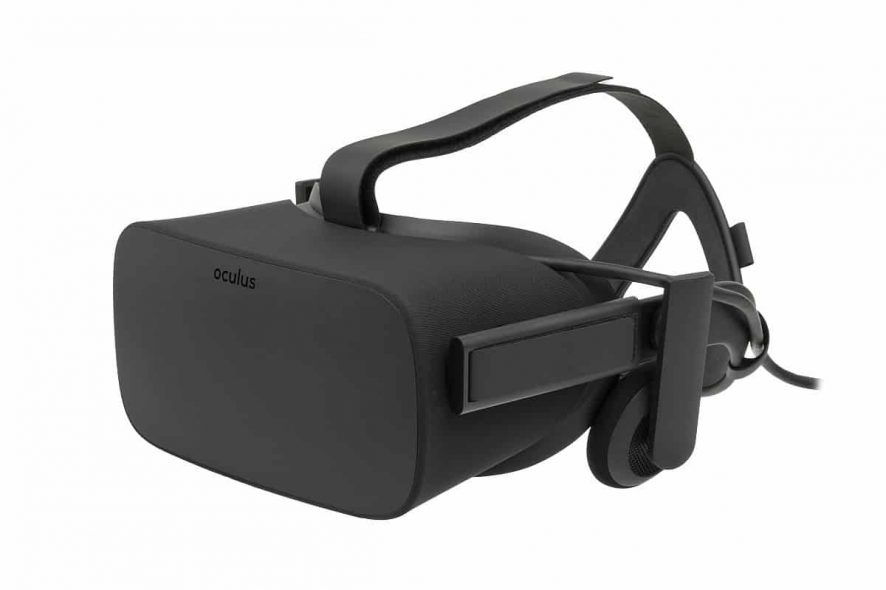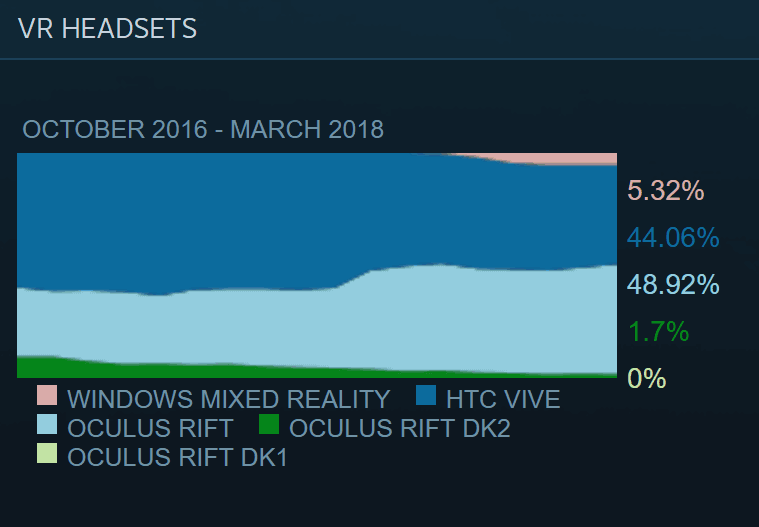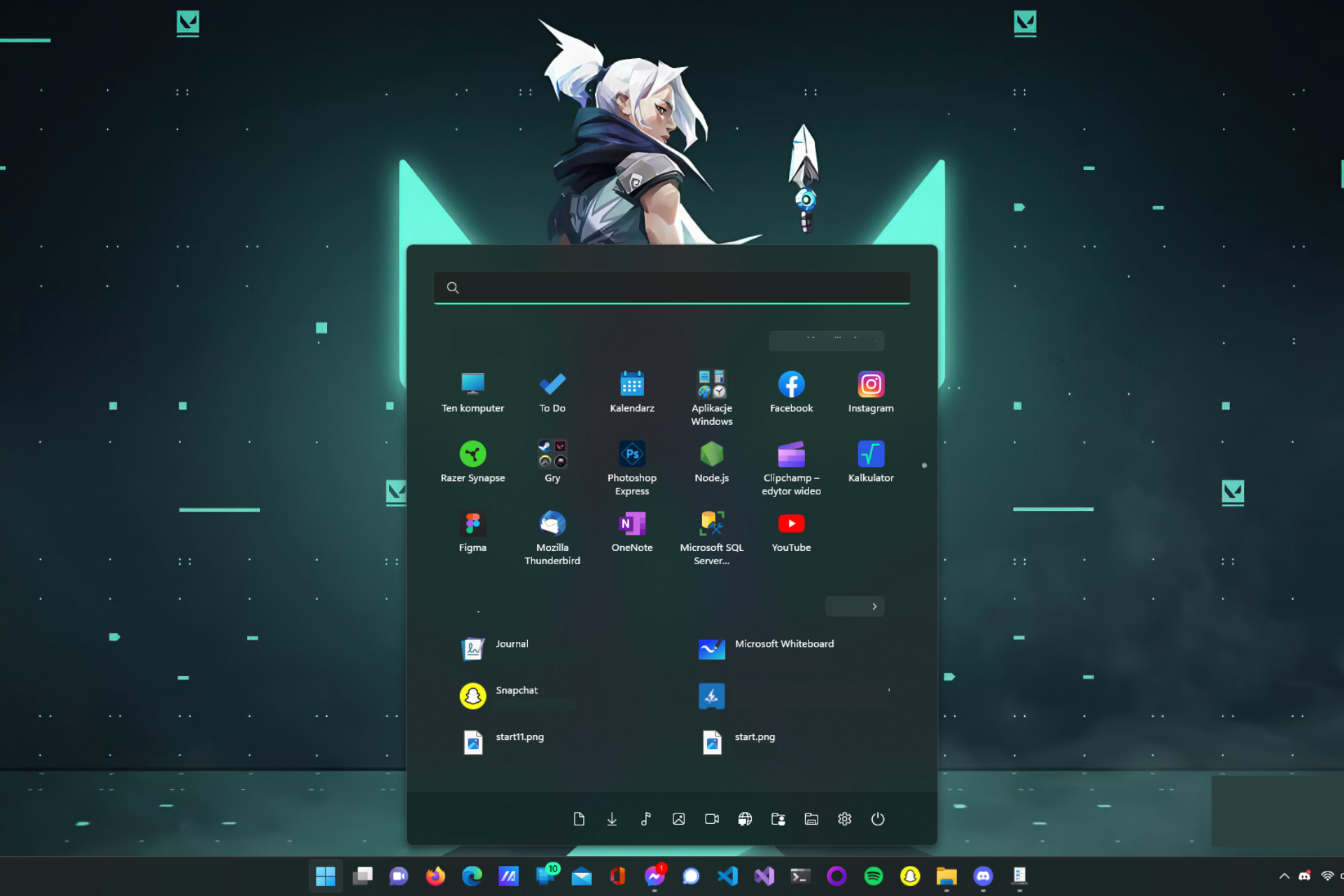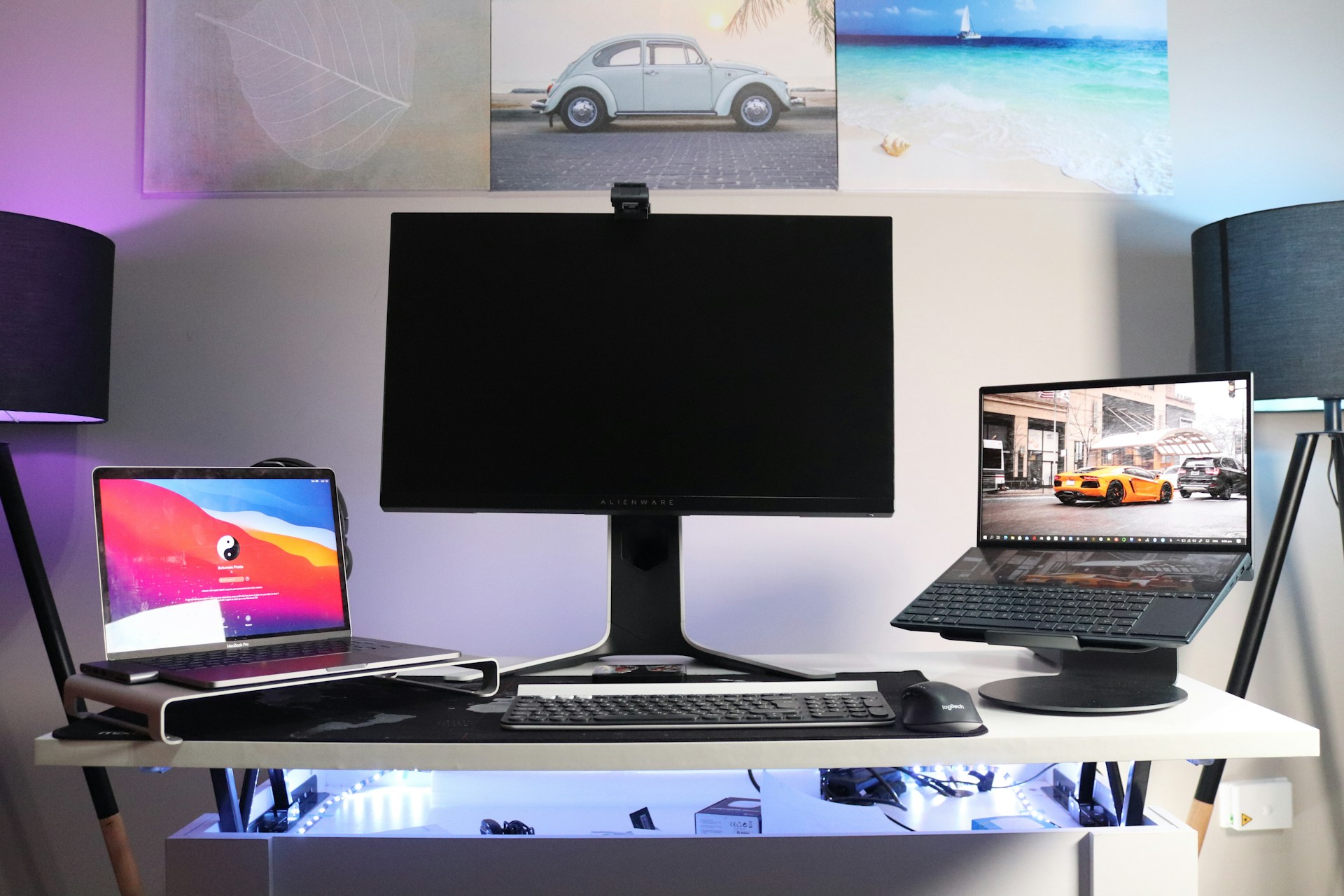Oculus Rift is more popular than Windows Mixed Reality and HTC Vive
2 min. read
Updated on
Read our disclosure page to find out how can you help Windows Report sustain the editorial team Read more

The Steam Hardware Survey numbers for March 2018 are out and things are not looking good for Microsoft as its Windows Mixed Reality (WMR) fortunes seem to be dwindling.
As you will recall, the WMR headsets have been facing a slow growth in market share, despite the company implementing deep price cuts on the headsets, which initially promised easy setup and support for lower-spec PCs.
Steam’s latest figures place Facebook’s Oculus Rift at the top, with its market share at 50.62 percent, up from 47.31 percent in February this year. This compared to WMR’s share which fell from 5.36 percent to stand at 5.32 percent, while HTC’s Vive also dropped to 44.06 percent from 45.38 percent.
WMR headsets weren’t well received in the market, as consumers responded by shrugging off the product, leaving Microsoft at crossroads, struggling to maintain their market share.
Large retailers such as Currys, even removed the headsets – which were launched barely five months ago – from their shelves, retaining Vive’s HTC and Facebook’s Oculus Rift headsets instead.
Developers too, lost interest in the WMR headset over time, saying there’s more pressure to develop for the other two strong players in the market: Oculus Go and Vive.
It is clear that Microsoft’s WMR headsets are struggling to stay afloat, which isn’t what they envisioned for the product that ideally had greater advantage over its rivals, what with the close relationships with PC OEMs, and the built-in support feature on Windows 10.
The Steam survey, conducted by Valve every month, is based on the hardware and software used by its user population to reveal how things change over time. But while the numbers are a reflection of the Steam platform, they still give insights into the trends in the market.
Microsoft may have to do a lot more to raise buyer interests in the technology if they’re going to continue having any impact. But numbers don’t lie, Oculus is winning at attracting more gamers to its side.
Do you think Microsoft should bow out?
RELATED STORIES TO CHECK OUT:
- Best VR headsets for a truly immersive gaming experience to buy in 2018
- Lenovo’s Holographic VR headset makes its first appearance
- MSI VR One brings high quality VR and extreme gaming performance









